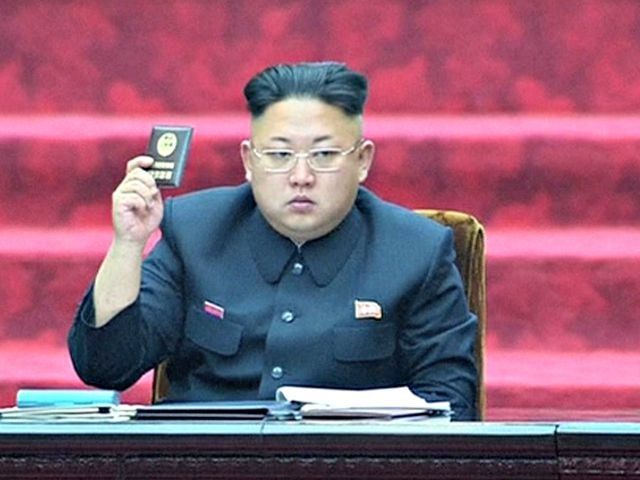The government of North Korea has rightfully gained a reputation in the West for isolation and obstinacy, but its diplomatic ventures in Africa have poised it to be significantly more influential on that continent than potentially anywhere else.
The Diplomat reports on the communist dictatorship’s strategy of amassing “soft power” in the region through everything from academic exchanges to support for anti-gay policies and even illegal arms sales. The publication describes the strategy as “two-pronged,” involving both making African nations into customers for their arms as well as reliable allies against the conceit of Western “imperialism,” the enemy against which the North Korean dictatorship defines itself. Given the history of colonialism in many African nations, rhetoric condemning the Western world has resonated with autocrats in the region.
Among the most loyal supporters of North Korea on the continent are Yoweri Museveni, the president of Uganda, which the publication notes has made the United Kingdom a recurring public bogeyman. Museveni, The Diplomat writes, “exploited public disdain for the British colonial legacy, to condemn Western pro-democracy and human rights organizations for fostering social imperialism in Uganda.” With nations like Uganda, North Korea uses ideological points of agreement, like the eradication of the nations’ LGBT population, to foster warmth between the countries. These “soft power” ties result in support on international stages like the United Nations.
With countries like Angola, which boasts a hammer and sickle on its flag, the ties are more concrete. Angola has been repeatedly accused of violating UN sanctions on North Korea and buying defense tools from the communist nation, including arms and military trainers. Uganda and Tanzania have partaken in this sort of trade on a lesser scale with North Korea, as well. Most recently, North Korea began the training of 400 Ugandan law enforcement officials in Africa. This sort of trade places agents of the North Korean state thousands of miles away from Pyongyang in a position of power, a position that raises significant concerns regarding the ability of North Korea to attack Western bases or points of interest in the region.
Nor has North Korea limited itself to the southern African states. The autocracy has expanded its relations with Nigeria significantly, both under the tenure of former president Goodluck Jonathan and current head of state Muhammadu Buhari. In May, the two countries agreed to “facilitate the exchange of experts, technicians, and university professors between the DPRK and Nigerian universities.” This agreement was described as “economic” and could lead to further expansion of ties.
North Korea has spared no expense in ingratiating itself to West Africa. The nation has even officially accused the United States–namely, the Ronald Reagan administration–of developing the Ebola virus and setting it loose in Africa to keep the developing world weak. The notion that the United States and Western medics generally were spreading, and not containing, the Ebola virus led to thousands of deaths in 2014, as families of those infected worked to hide their relatives from doctors upon identifying Ebola symptoms.
North Korea has not been quiet about its ties to Africa. A cursory look at articles in Rodong Sinmun, the official state newspaper, finds boasts of support from Nigeria– both under Jonathan and Buhari— as well as supportive messages from Guinea, Ethiopia, and Angola.
While the developed world marginalizes North Korea and spreads awareness of the atrocious human rights abuses occurring under Kim Jong-Un, the dictator has made his moves to expand his influence while doing little to dismantled the image of his nation as an isolated toxic element in the international ecosystem.

COMMENTS
Please let us know if you're having issues with commenting.